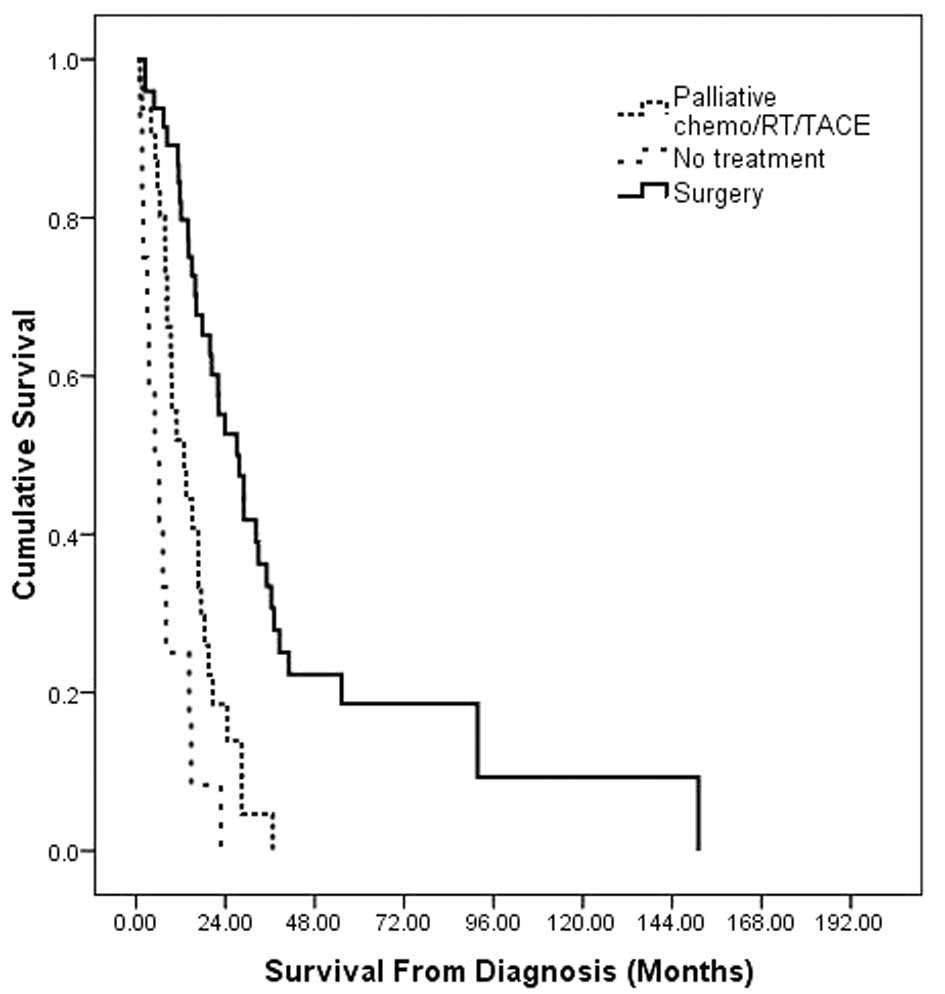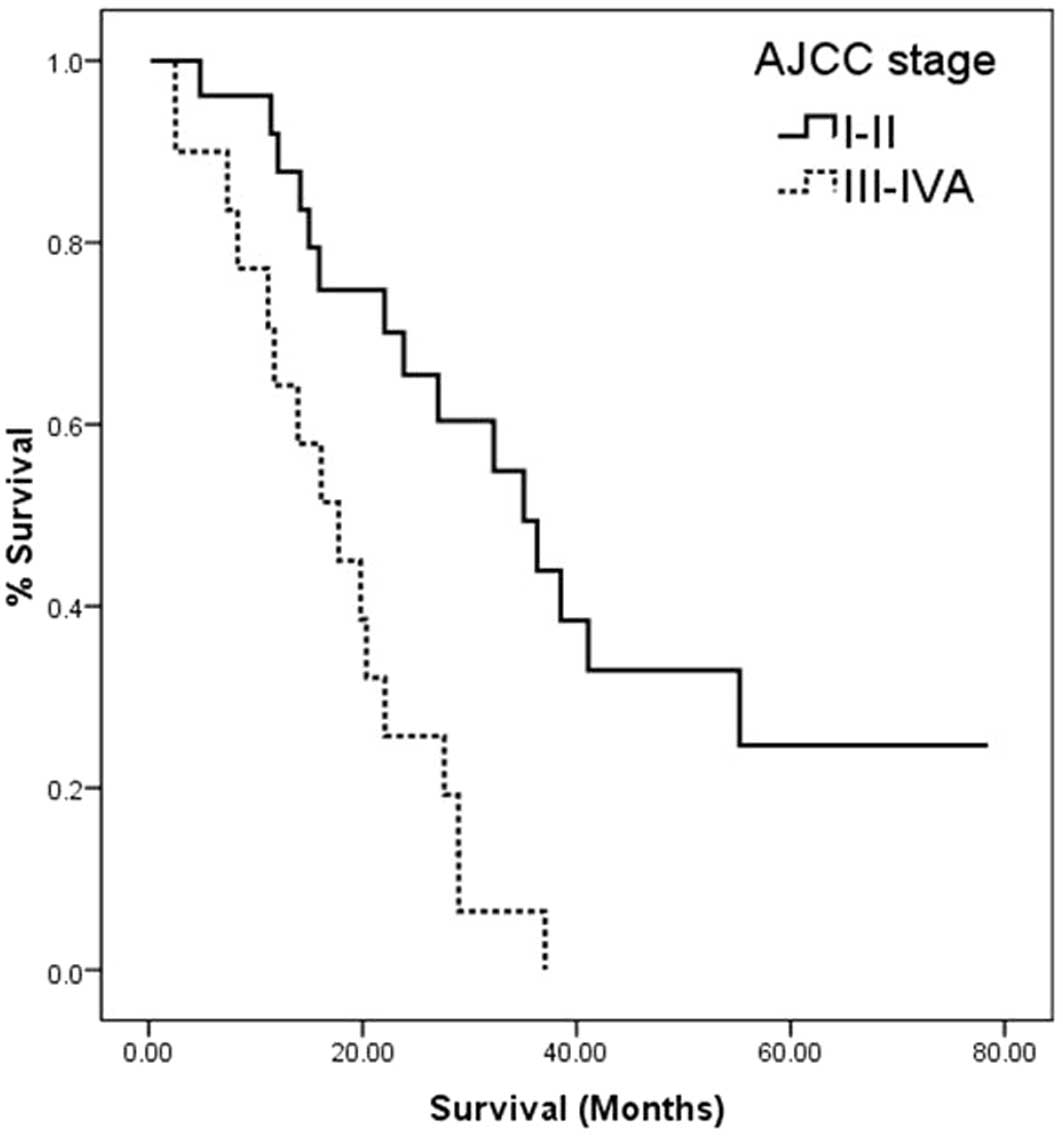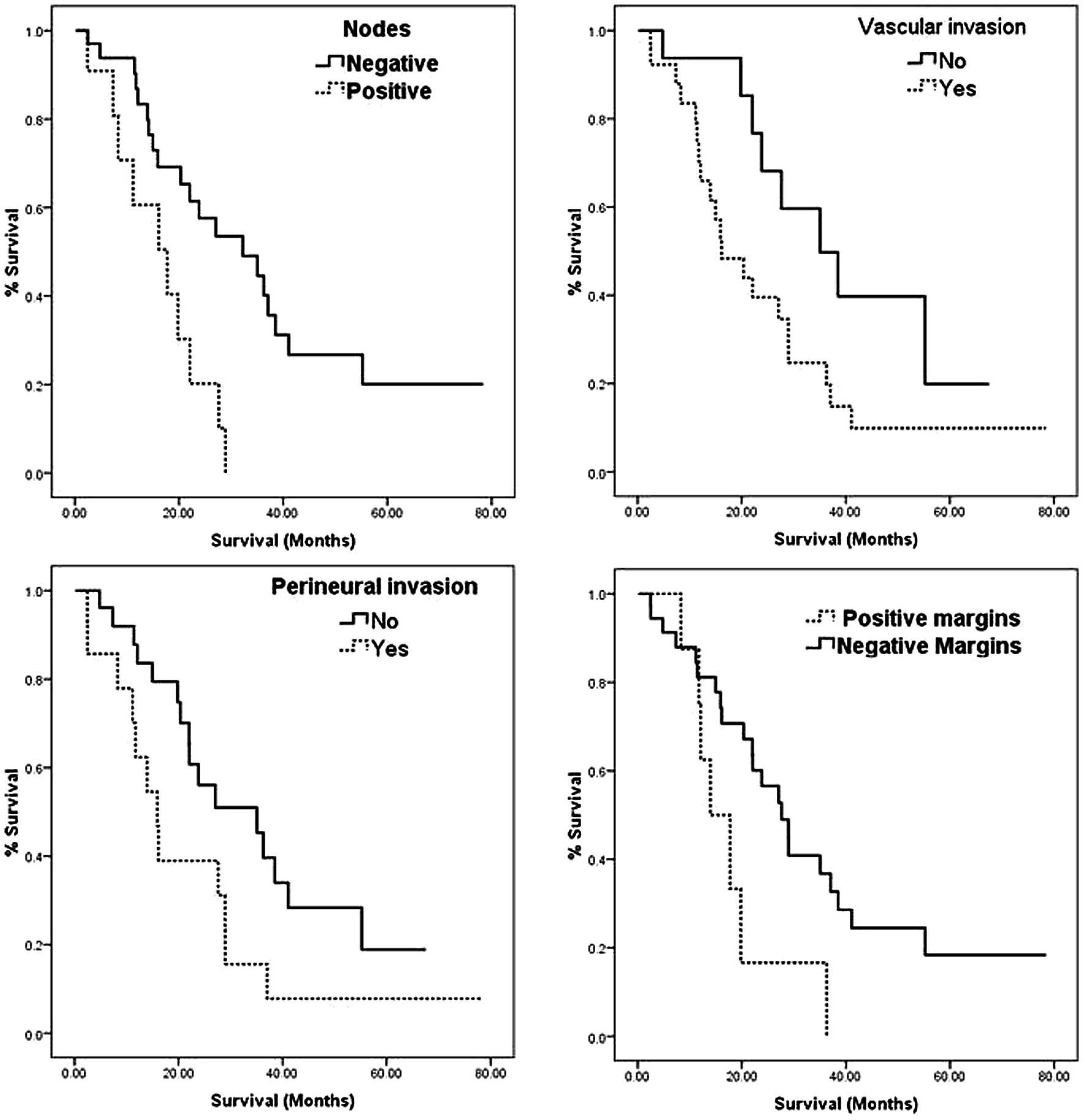|
1
|
Chang KY, Chang JY and Yen Y: Increasing
incidence of intrahepatic cholangiocarcinoma and its relationship
to chronic viral hepatitis. J Natl Compr Cancer Netw. 7:423–427.
2009.PubMed/NCBI
|
|
2
|
Surveillance E, End Results (SEER)
Program(www.seer.cancer.gov) SEER*Stat Database
Incidence - SEER 9 Regs Research Data, Nov 2009 Sub (1973–2007)
National Cancer Institute, DCCPS, Surveillance Research Program,
Cancer Statistics Branch, released April 2010, based on the
November 2009 submission
|
|
3
|
Espey DK, Wu XC, Swan J, et al: Annual
report to the nation on the status of cancer, 1975–2004 featuring
cancer in American Indians and Alaska Natives. Cancer.
110:2119–2152. 2007.
|
|
4
|
Patel T: Increasing incidence and
mortality of primary intrahepatic cholangiocarcinoma in the United
States. Hepatology. 33:1353–1357. 2001. View Article : Google Scholar : PubMed/NCBI
|
|
5
|
Shaib YH, Davila JA, McGlynn K and
El-Serag HB: Rising incidence of intrahepatic cholangiocarcinoma in
the United States: a true increase? J Hepatol. 40:472–477. 2004.
View Article : Google Scholar : PubMed/NCBI
|
|
6
|
Lowe R, Afdhal N and Anderson C:
Epidemiology, pathogenesis, and classification of
cholangiocarcinoma. UpToDate. Basow DS: UpToDate Waltham, MA:
2010
|
|
7
|
Helms RA and Quan DJ: Intrahepatic
cholangiocarcinoma. Textbook of Therapeutics: Drug and Disease
Management. 8th. Lipincott Williams & Wilkins; Philadelphia,
PA: pp. 23802006
|
|
8
|
Wideroff L, Gridley G, Mellemkjaer L, et
al: Cancer incidence in a population-based cohort of patients
hospitalized with diabetes mellitus in Denmark. J Natl Cancer Inst.
89:1360–1365. 1997. View Article : Google Scholar
|
|
9
|
Donato F, Gelatti U, Tagger A, et al:
Intrahepatic cholangiocarcinoma and hepatitis C and B virus
infection, alcohol intake, and hepatolithiasis: a case-control
study in Italy. Cancer Causes Control. 12:959–964. 2001. View Article : Google Scholar : PubMed/NCBI
|
|
10
|
Welzel TM, Graubard BI, El-Serag HB, et
al: Risk factors for intrahepatic and extrahepatic
cholangiocarcinoma in the United States: a population-based
case-control study. Clin Gastroenterol Hepatol. 5:1221–1228. 2007.
View Article : Google Scholar : PubMed/NCBI
|
|
11
|
El-Serag HB, Engels EA, Landgren O, et al:
Risk of hepatobiliary and pancreatic cancers after hepatitis C
virus infection: a population-based study of U.S. veterans.
Hepatology. 49:116–123. 2009. View Article : Google Scholar : PubMed/NCBI
|
|
12
|
Edge SB and Compton CC: The American Joint
Committee on Cancer: the 7th edition of the AJCC cancer staging
manual and the future of TNM. Ann Surg Oncol. 17:1471–1474. 2010.
View Article : Google Scholar : PubMed/NCBI
|
|
13
|
Anderson CD, Pinson CW, Berlin J and Chari
RS: Diagnosis and treatment of cholangiocarcinoma. Oncologist.
9:43–57. 2004. View Article : Google Scholar
|
|
14
|
Ustundag Y and Bayraktar Y:
Cholangiocarcinoma: a compact review of the literature. World J
Gastroenterol. 14:6458–6466. 2008. View Article : Google Scholar : PubMed/NCBI
|
|
15
|
Gatto M and Alvaro D: Cholangiocarcinoma:
risk factors and clinical presentation. Eur Rev Med Pharmacol Sci.
14:363–367. 2010.PubMed/NCBI
|
|
16
|
Carriaga MT and Henson DE: Liver,
gallbladder, extrahepatic bile ducts, and pancreas. Cancer.
75(Suppl 1): 171–190. 1995. View Article : Google Scholar : PubMed/NCBI
|
|
17
|
Yamamoto S, Kubo S, Hai S, et al:
Hepatitis C virus infection as a likely etiology of intrahepatic
cholangiocarcinoma. Cancer Sci. 95:592–595. 2004. View Article : Google Scholar : PubMed/NCBI
|
|
18
|
Kobayashi M, Ikeda K, Saitoh S, et al:
Incidence of primary cholangiocellular carcinoma of the liver in
Japanese patients with hepatitis C virus-related cirrhosis. Cancer.
88:2471–2477. 2000. View Article : Google Scholar
|
|
19
|
Shin HR, Lee CU, Park HJ, et al: Hepatitis
B and C virus, Clonorchis sinensis for the risk of liver
cancer: a case-control study in Pusan, Korea. Int J Epidemiol.
25:933–940. 1996.PubMed/NCBI
|
|
20
|
Perumal V, Wang J, Thuluvath P, Choti M
and Torbenson M: Hepatitis C and hepatitis B nucleic acids are
present in intrahepatic cholangiocarcinomas from the United States.
Hum Pathol. 37:1211–1216. 2006. View Article : Google Scholar : PubMed/NCBI
|
|
21
|
Chen RF, Li ZH, Zou SQ and Chen JS: Effect
of hepatitis C virus core protein on modulation of cellular
proliferation and apoptosis in hilar cholangiocarcinoma.
Hepatobiliary Pancreat Dis Int. 4:71–74. 2005.PubMed/NCBI
|
|
22
|
Torbenson M, Yeh MM and Abraham SC: Bile
duct dysplasia in the setting of chronic hepatitis C and alcohol
cirrhosis. Am J Surg Pathol. 31:1410–1413. 2007. View Article : Google Scholar : PubMed/NCBI
|
|
23
|
Chu KM, Lai EC, Al-Hadeedi S, et al:
Intrahepatic cholangiocarcinoma. World J Surg. 21:301–306. 1997.
View Article : Google Scholar
|
|
24
|
Harrison LE, Fong Y, Klimstra DS, Zee SY
and Blumgart LH: Surgical treatment of 32 patients with peripheral
intrahepatic cholangiocarcinoma. Br J Surg. 85:1068–1070. 1998.
View Article : Google Scholar : PubMed/NCBI
|
|
25
|
Roayaie S, Guarrera JV, Ye MQ, et al:
Aggressive surgical treatment of intrahepatic cholangiocarcinoma:
predictors of outcomes. J Am Coll Surg. 187:365–372. 1998.
View Article : Google Scholar : PubMed/NCBI
|
|
26
|
Lieser MJ, Barry MK, Rowland C, Ilstrup DM
and Nagorney DM: Surgical management of intrahepatic
cholangiocarcinoma: a 31-year experience. J Hepatobiliary Pancreat
Surg. 5:41–47. 1998.PubMed/NCBI
|
|
27
|
Valverde A, Bonhomme N, Farges O, Sauvanet
A, Flejou JF and Belghiti J: Resection of intrahepatic
cholangiocarcinoma: a Western experience. J Hepatobiliary Pancreat
Surg. 6:122–127. 1999. View Article : Google Scholar : PubMed/NCBI
|
|
28
|
Weber SM, Jarnagin WR, Klimstra D,
DeMatteo RP, Fong Y and Blumgart LH: Intrahepatic
cholangiocarcinoma: resectability, recurrence pattern, and
outcomes. J Am Coll Surg. 193:384–391. 2001. View Article : Google Scholar : PubMed/NCBI
|
|
29
|
Ohtsuka M, Ito H, Kimura F, et al:
Extended hepatic resection and outcomes in intrahepatic
cholangiocarcinoma. J Hepatobiliary Pancreat Surg. 10:259–264.
2003. View Article : Google Scholar : PubMed/NCBI
|
|
30
|
Guglielmi A, Ruzzenente A, Campagnaro T,
et al: Intrahepatic cholangiocarcinoma: prognostic factors after
surgical resection. World J Surg. 33:1247–1254. 2009. View Article : Google Scholar : PubMed/NCBI
|
|
31
|
Li SQ, Liang LJ, Hua YP, et al: Long-term
outcome and prognostic factors of intrahepatic cholangiocarcinoma.
Chin Med J. 122:2286–2291. 2009.PubMed/NCBI
|

















